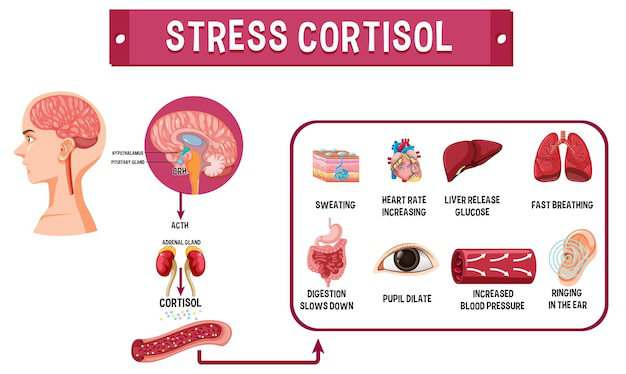You’re eating healthy, staying active, and doing everything “right”—yet the scale won’t budge. Sound familiar? If you’ve been struggling to lose weight, your hormones might be the missing piece of the puzzle.
Hormones control everything from metabolism and fat storage to appetite and energy levels. When they’re balanced, your body functions smoothly. But when hormone imbalances occur, weight gain, sluggishness, and frustration follow.
In this blog, we’ll explore how hormone imbalances impact weight management and the best ways to regain control, including medical solutions like peptide therapy and appetite suppressants.
How Hormones Control Weight Management
Hormones act as messengers, regulating metabolism, fat storage, and hunger. Here are the key players affecting weight loss:
- Insulin: The Fat-Storing Hormone
Insulin regulates blood sugar, but excess levels can promote fat storage, especially around the belly. Poor insulin sensitivity (insulin resistance) makes it harder to burn fat, leading to weight gain.
Solution: Reducing sugar intake, following a balanced diet, and incorporating treatments like Lipotropic Vitamin Injections can support healthy insulin function.
- Cortisol: The Stress Hormone
Chronic stress leads to elevated cortisol, which triggers cravings for high-fat, high-sugar foods. This results in stubborn belly fat and slow metabolism.
Solution: Managing stress through lifestyle changes, exercise, and targeted therapies like hormone therapy can help regulate cortisol levels.
- Thyroid Hormones: The Metabolism Regulators
An underactive thyroid slows metabolism, causing fatigue, weight gain, and difficulty shedding pounds. Thyroid dysfunction is often undiagnosed but plays a major role in weight management.
Solution: A medical evaluation can identify thyroid-related issues, and hormone therapy may help restore balance.
- Testosterone: The Muscle and Fat-Burning Hormone
Low testosterone levels in men can lead to muscle loss, increased fat storage, and low energy. Testosterone also supports a healthy metabolism and muscle-building, which helps burn fat more efficiently.
Solution: Testosterone replacement therapy helps restore testosterone levels, improving fat loss, energy, and overall well-being.
- Estrogen and Progesterone: The Female Fat Regulators
In women, declining estrogen levels (especially during menopause) can increase belly fat and make weight loss harder. Progesterone imbalances can also lead to water retention and bloating.
Solution: Lifestyle changes and medical support, such as hormone therapy, can help stabilize these hormones and promote healthy weight loss.
Signs That Hormone Imbalances Are Affecting Your Weight
If you’re experiencing any of these symptoms, hormone imbalances may be interfering with your weight loss efforts:
✔ Sudden weight gain or difficulty losing weight
✔ Uncontrollable cravings, especially for sugar and carbs
✔ Low energy levels and constant fatigue
✔ Increased belly fat despite exercise
✔ Mood swings, depression, or anxiety
✔ Slow metabolism and sluggish digestion
✔ Loss of muscle mass, especially in men
If these sound familiar, it’s time to explore solutions that go beyond traditional dieting.
How to Address Hormone Imbalances for Weight Loss
- Get a Medical Evaluation
The first step in tackling hormone imbalances is a proper medical assessment. At InShapeMD, our specialists evaluate your hormone levels to pinpoint imbalances and recommend customized treatments.
- Consider Peptide Therapyfor Fat Loss
Peptides like Semaglutide and Tirzepatide, which are used in weight loss injections, can regulate insulin, suppress appetite, and enhance metabolism. They work by mimicking natural hormones that control hunger and energy balance.
- Try Testosterone Replacement Therapy(For Men)
Men struggling with low testosterone levels can benefit from testosterone replacement therapy. This treatment helps increase muscle mass, reduce fat, and restore energy.

- Use Lipotropic Injections for Metabolism Boosting
Lipo C shots for weight loss support fat metabolism by delivering essential vitamins and amino acids that help burn fat more efficiently.
- Explore Medical Appetite Suppressants
If cravings are derailing your progress, appetite suppressants for weight loss can help regulate hunger, making it easier to stay on track with a healthy diet.
- Maintain a Hormone-Friendly Diet
Certain foods support hormone balance and improve metabolism. Include:
- Healthy fats (avocados, nuts, olive oil)
- Lean proteins (chicken, fish, tofu)
- Fiber-rich foods (vegetables, whole grains)
- Omega-3 fatty acids (salmon, chia seeds, flaxseeds)
- Prioritize Sleep and Stress Management
Poor sleep and chronic stress disrupt cortisol, insulin, and appetite hormones, leading to weight gain. Establishing a consistent sleep schedule and practicing stress-reducing techniques like yoga and meditation can help.
- Stay Consistent with Your Treatment Plan
Treating hormone imbalances is not a one-time fix—it requires consistency and commitment. Regular check-ins with your provider, follow-ups, and lifestyle adjustments ensure long-term success.
See Real Results! Watch our client testimonial videos to hear how others have transformed their lives with our hormone therapies and weight loss programs.
Take Control of Your Weight and Hormones
Weight struggles aren’t always about willpower—hormone imbalances could be working against you. If you’ve tried dieting and exercise with little success, it’s time to take a different approach.
At InShapeMD, we offer advanced treatments like testosterone replacement therapy, peptide therapy, lipotropic injections, and medical weight loss programs in San Angelo, Texas, designed to balance hormones and support sustainable weight loss.
Schedule a consultation today! Let’s create a customized plan tailored to your body’s needs. Fill out our patient form here to get started.





